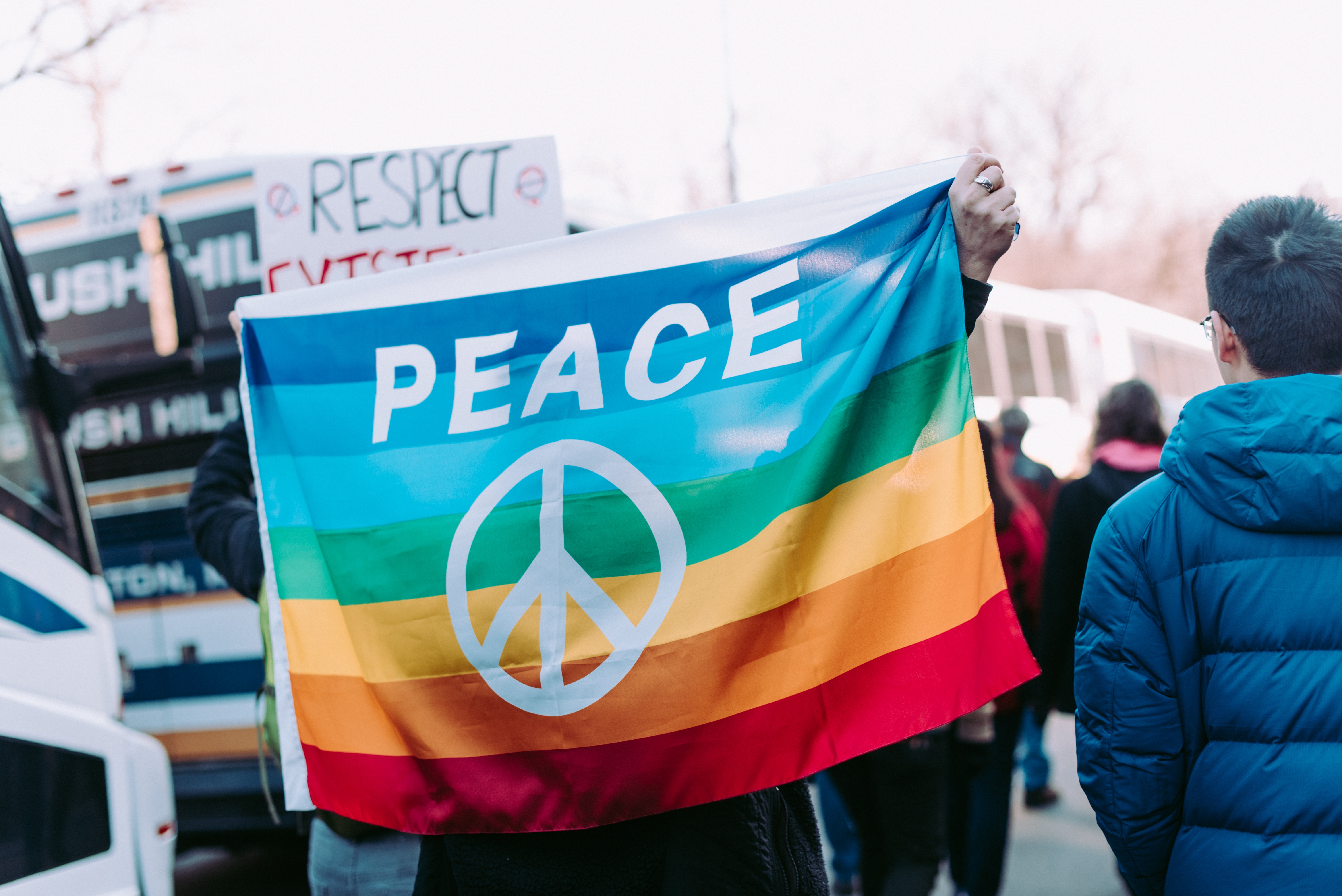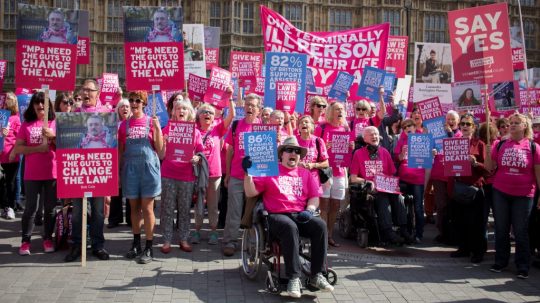LGBT rights charity Stonewall have today released a report detailing the ‘profound impact’ of discrimination against transgender people in Britain.
The report, based on research conducted alongside polling firm YouGov, suggests 12 per cent of trans employees have been physically attacked at work by either a colleague or a customer, while over half have ‘hidden their identity at work’ fearing discrimination.
Even with increasing protections for trans people, two in five (41 per cent) say they have been a victim of a hate crime related to their gender identity in the last year, while more than a quarter have experienced domestic abuse from a partner.
These figures come in the wake of a media campaign against ‘trans bathrooms’ – transgender people using the bathroom of their identified gender. It’s no surprise, then, that Stonewall say 48% of trans people “don’t feel comfortable” using a public bathroom of any kind.
But what does this have to do with human rights?

Photo by Matthew Henry on Unsplash
Gender identity is a protected characteristic under the Equality Act 2010 – intended to guarantee individuals freedom from discrimination by employers on grounds including race, gender, disability, and sexual identity.
This right to freedom from discrimination is clearly not being respected, when figures suggest over half of trans and non-binary people feel uncomfortable coming out in the workplace out of fear for discrimination or risk of physical assault.
In response, Stonewall are encouraging employers to develop internal policies to support trans employees, as well as take a zero tolerance line on bullying and discrimination.
The report also raises concerns over serious inadequacies in the healthcare system for trans people. 41 per cent of respondents reported that healthcare staff “lacked understanding” of trans health, while 7 per cent said they had been refused treatment because of their gender identity.
There is a right to health enshrined in the Universal Declaration of Human Rights, including an obligation on states to provide the “highest attainable standard of health” to its people – albeit under the principle of ‘progressive realisation’, which accepts that limited resources may reduce the state’s ability to provide adequate healthcare.
So what can be done?
Stonewall’s Chief Executive, Ruth Hunt, said, “This situation is not acceptable, and it has been made worse by increasingly frequent attacks in the media and on social media from a vocal minority. Headlines and stories that make ludicrous claims that people are being ‘turned trans’, and that sensationalise and misrepresent the reality of being trans are reminiscent of days gone by. Days when the media constantly hounded lesbian, gay and bi people as deviants prevented progress on equality for so long.”
The charity has laid out a series of recommendations to improve trans welfare and protection from discrimination, including calling on police forces to “improve confidence in reporting” hate crimes by treating them as aggravated offences. They suggest further training for frontline police staff to identify and process incidents of transphobic hate crime.
They also recommend the judiciary and prosecution service should “provide targeted support to victims”, while ensuring all members are specifically trained to deal with transphobia.
The Gender Recognition Act 2004, which gave people with gender dysphoria the right to be legally recognised as their preferred gender, also came in for some criticism, with the charity calling on the government to switch to a system of self-declaration, in place of the current process of medical evaluations.

Photo by Alice Donovan Rouse on Unsplash
Is it all bad news?
Actually, no – 44 per cent of respondents said they were ‘optimistic’ with the direction of LGBT rights in the UK.
Progress has increased rapidly over the last couple of decades. The Gender Recognition Act preceded the passing of a steady stream of laws, including the Equality Act, that help enshrine trans rights, and clear efforts are being made to reduce discrimination and hate crime against the trans community.






